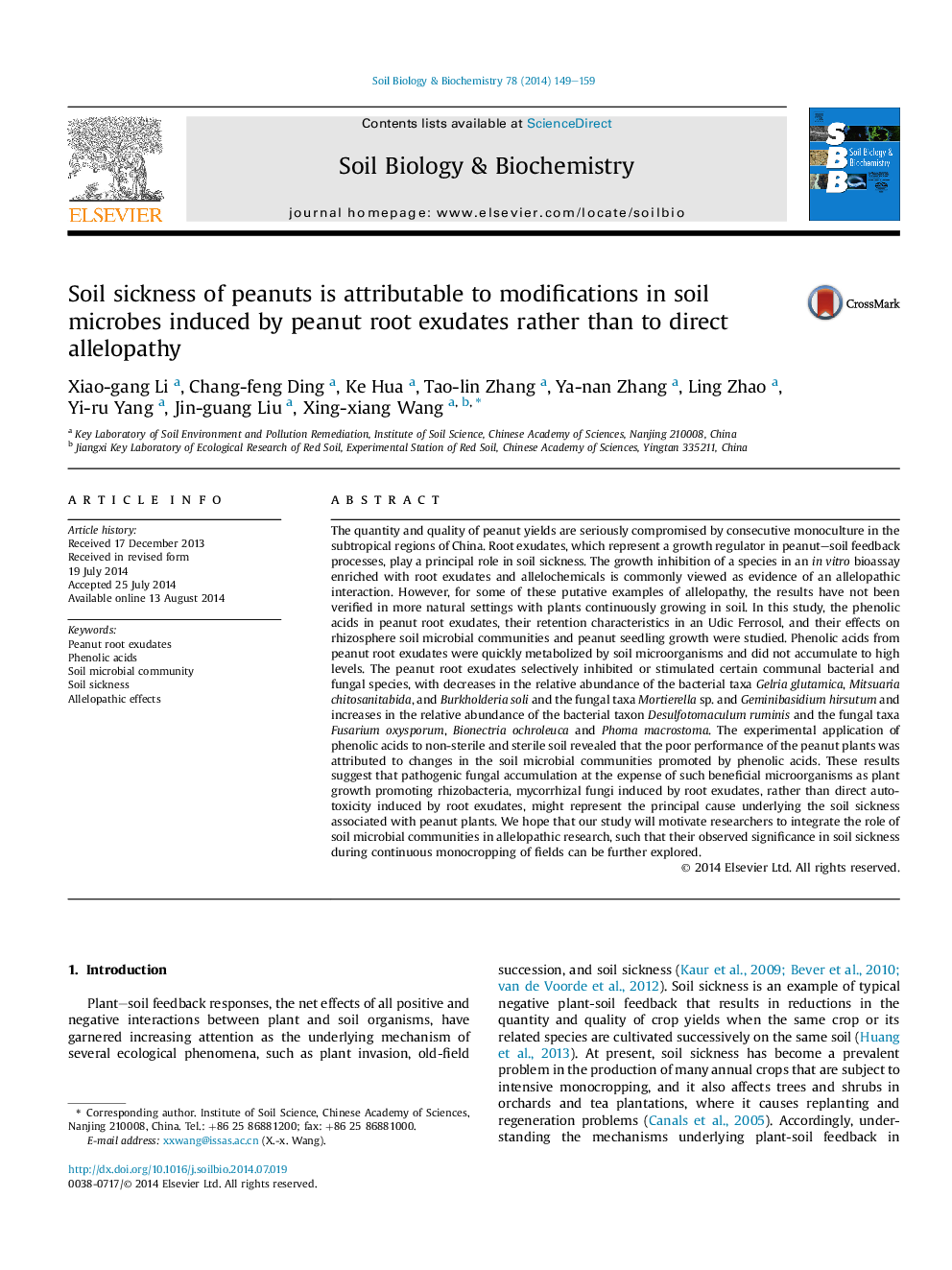| Article ID | Journal | Published Year | Pages | File Type |
|---|---|---|---|---|
| 2024580 | Soil Biology and Biochemistry | 2014 | 11 Pages |
•Phenolic acids were mostly metabolized by microbes rather than accumulation in soil.•Peanut root exudates increased pathogenic fungi and decreased beneficial microbes.•Pseudomonads community responded sensitively to peanut root exudates.•Bad peanut performance was due to changes of soil microbes incited by phenolic acids.
The quantity and quality of peanut yields are seriously compromised by consecutive monoculture in the subtropical regions of China. Root exudates, which represent a growth regulator in peanut–soil feedback processes, play a principal role in soil sickness. The growth inhibition of a species in an in vitro bioassay enriched with root exudates and allelochemicals is commonly viewed as evidence of an allelopathic interaction. However, for some of these putative examples of allelopathy, the results have not been verified in more natural settings with plants continuously growing in soil. In this study, the phenolic acids in peanut root exudates, their retention characteristics in an Udic Ferrosol, and their effects on rhizosphere soil microbial communities and peanut seedling growth were studied. Phenolic acids from peanut root exudates were quickly metabolized by soil microorganisms and did not accumulate to high levels. The peanut root exudates selectively inhibited or stimulated certain communal bacterial and fungal species, with decreases in the relative abundance of the bacterial taxa Gelria glutamica, Mitsuaria chitosanitabida, and Burkholderia soli and the fungal taxa Mortierella sp. and Geminibasidium hirsutum and increases in the relative abundance of the bacterial taxon Desulfotomaculum ruminis and the fungal taxa Fusarium oxysporum, Bionectria ochroleuca and Phoma macrostoma. The experimental application of phenolic acids to non-sterile and sterile soil revealed that the poor performance of the peanut plants was attributed to changes in the soil microbial communities promoted by phenolic acids. These results suggest that pathogenic fungal accumulation at the expense of such beneficial microorganisms as plant growth promoting rhizobacteria, mycorrhizal fungi induced by root exudates, rather than direct autotoxicity induced by root exudates, might represent the principal cause underlying the soil sickness associated with peanut plants. We hope that our study will motivate researchers to integrate the role of soil microbial communities in allelopathic research, such that their observed significance in soil sickness during continuous monocropping of fields can be further explored.
